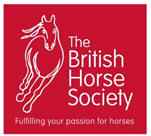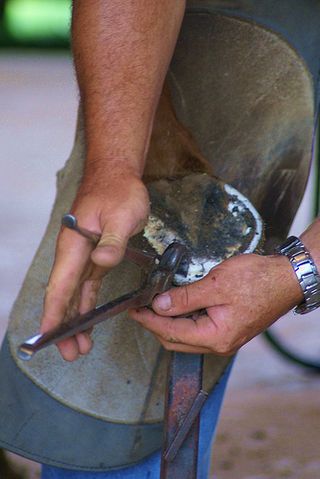Take a look at what's involve in a typical day at work as an equine veterinary nurse.
Working with horses
A look at different equine / equestrian careers and how to get qualified
06/08/2013
Equine Veterinary Nursing
Take a look at what's involve in a typical day at work as an equine veterinary nurse.
Browse these next
- Casino Not On Gamstop
- Casinos Not On Gamstop
- Casino Sites Not On Gamstop
- Casino Sites Not On Gamstop
- Gambling Sites Not On Gamstop
- Casino Online Stranieri Non Aams
- Non Gamstop Casino
- Sites Not On Gamstop
- Slots Not On Gamstop
- オンラインカジノ 日本
- Casino Not On Gamstop
- Online Casino Sites UK
- Casino Sites Not On Gamstop
- Casino En Ligne Fiable
- Beste Online Casinos
- Non Gamstop Casino UK
- Casino Sites Not On Gamstop
- UK Betting Sites
- Non Gamstop Casino UK
- UK Casino Sites Not On Gamstop
- Casinos Not On Gamstop
- Uk Sports Betting Sites Not On Gamstop
- Casino Sites Not On Gamstop
06/07/2013
Thinking about a career in horse racing?
Thinking about a career in horse racing, click here to see an A to Z of different careers in horse racing, they don't all involve riding! Watch the video to hear what some Australian racing folk have to say about their horse racing careers.
05/25/2013
Oliver Townend and how you don't have to be posh to get involved in equestrian sport
Three teenagers interview eventer Oliver Townend about his roots hoping to show that no matter what background you come from you can still have a career in equestrian sports.
Posted at 09:21 PM | Permalink
Technorati Tags: equestrian career, eventing, Oliver Townend, video
05/21/2013
BHS Guide to Working with Horses
The British Horse Society have a free guide to working with horses which covers the following areas:
Training for a career with horses.
Starting off:
Why BHS qualifications?
Work based Diplomas and Scottish Vocational Qualifications.
Apprenticeships.
How to train for BHS examinations.
Careers in horse care:
Assistant groom.
Groom.
BHS register of Grooms.
Careers in Yard Management:
Head Groom, Equine Yard Manager, Riding Centre Manager, Stud Manager.
Carrers in Coaching:
Coach / Riding Instructor
BHS Preliminary Teaching of Horse Riding
BHS Assistant Instructors Certificate (BHSAI)
BHS Intermediate Certificate (BHSII)
BHS Instructor's Certificate (BHSI)
Fellow of The British Horse Society (FBHS)
The BHS Register of Instructors
Careers in Equine Tourism
EQL Level 2 Diploma for the Ride Leader
EQL Level 3 Diploma for the Ride Leader
Equestrian Tourism Centre Manager
Available in a PDF to dowload here
Posted at 10:18 AM | Permalink
Technorati Tags: BHS, equine tourism, groom, horse careers, riding instructor, working with horses, yard management
01/19/2013
Equine Podiatry - Becoming an Equine Podiatrist
Equine podiatry is the study and management of the equine foot based on its anatomy and function. Wiki
The job title "Equine Podiatrist" is used by people with a wide range of backgrounds. Some are veterinarians who have chosen to specialize in the equine hoof, while some are remedial farriers. There is also a new group of specialists known as "Applied Equine Podiatrists", with neither a veterinary nor farriery background, who work with horse owners to improve the health of the equine hoof without the use of shoeing and by taking a more holistic approach. Wiki
The equine podiatrist profession can extend to include other equines , such as donkeys and mules.An equine podiatrist is a highly trained specialists in shoeless hoof care. A fully qualified Equine Podiatrist will have studied the anatomy and science of the equine foot and will understands how it works and how to influence its development by use of trim and environment.
You can find an article describing what an EP does and what to expect from a typical visit here.
How to become an Equine Podiatrist
The Equine Podiatry Association is a professional body professional body for Equine Podiatrists practicing in the UK it offers EP training, a Diploma in Equine Podiatry, provided by a separate company, Equine Podiatry Training Ltd.
The Diploma in Equine Podiatry is a two year, part time course which consists of 13 modules. Most modules require attendance on a short course, followed by guided self study and homework. The training covers:
Basic Business Skills
Introduction to Equine Podiatry
Anatomy and Physiology 1
Nutrition and Environment
Stage 1 Exam
Basic Trimming 1
Horse Behaviour and Handling
Trimming 2
Stage 2 Exam
Laminitis
Pathology
Farriery
Anatomy & Physiology 2
First Aid
Case Studies
Shadowing
Final exam
There are only 10 places a year and students should be 18 or over with some experience of working with / handling horses and due to the academic level of the coursework, students are expected to be educated to A Level standard or equivalent.
Full details can be found at Equine Podiatry Training Ltd
Cost of becoming an Equine Podiatrist
At the time of writing The Diploma in Equine Podiatry coats £4,800 + Mentoring fees of £1000, and Shadowing fees of £200. In addition students will have to pay travel to and from courses plus accommodation and meals.Books, tools, equipment and suitable (safety) clothing will also be required.
Image: Belinda Hankins Miller via Wikipedia
01/16/2013
Working with horses - how to get qualified - What is Distance Learning?
"Distance education or distance learning is a mode of delivering education and teaching, often on an individual basis, to students who are not physically present in a traditional setting such as a classroom. Distance learning provides "access to learning when the source of information and the learners are separated by time and distance, or both." Wikipedia
Distance learning is the name given to a structured learning plan where the student studies course material away from a college or university, usually at home. This form of study is also known as 'Home Study Courses', 'Correspondence Courses' and 'Open Learning.'
Posted at 06:30 PM in qualifications | Permalink
Technorati Tags: Correspondence Courses, Distance education, distance learning, education and teaching, Home Study Courses, Open Learning, study
11/30/2012
Equine / Equestrian Qualifications - Study Levels Explained
Apprenticeships, NVQs, BTECs, BHS Stages, so many different courses offering different qualifications and study levels. Choosing a course can be difficult, here we offer guidance about different study levels:
Study levels
Most courses are split into 'levels' (eg Level 2, Level 3). These levels can range from Entry Level up to Level 8.
The level best for you will depend on any existing qualifications and experience. In most cases, you will need to have a Level 2 qualification in a relevant subject to join a Level 3 course, a Level 1 qualification to join a Level 2 course and so on.
Further Education courses, including Apprenticeships, A-levels and BTECs, are part of the National Qualifications Framework (NQF) and are broken down into:
Entry Level courses
- Level 1 courses
- Level 2 courses
- Level 3 courses
Higher Education courses are typically classed at between Level 4 and Level 6. Vocational courses are part of the new Qualifications and Credit Framework (QCF) and available from Entry Level to Level 8.
Posted at 10:15 AM | Permalink
Technorati Tags: betec, equestrian, equine, National Qualifications Framework, nvqs, QCF, Qualifications and Credit Framework, study levels
11/27/2012
Video about the advantages of equine apprenticeships
In this video produced for Lantra you can hear what both employer and employee have to say about the benefits of equine apprenticeships both to equestrian / equine businesses and to the trainee.
Posted at 10:24 PM | Permalink
Technorati Tags: apprenticeships, equestrian, equine, lantra, trainee
11/01/2012
A - Z of Careers in Horse Racing
Advanced Flag Operator
Betting Investigator / analyst
Bloodstock Agent
Bookmaker
Catering Staff
Clerk of the Course
Clerk of the Scales
Event Manager
Farrier
Finance Assistant
Finance Controller
Goundstaff
Handicapper
Head Staff
Horse Transporter
Inspector of Courses
Investigating Officer
Jockey
Jockeys Agent
Journalist
Judge
Nominations Executive
Operations Manager
Pedigree Researcher
Personal Assistant
Racecourse Safety Officer
Raceday Official
Racehorse Trainer
Racing Administrator
Racing Secretary
Sponsorship / VAT Helpdesk
Stable Guard
Stable Staff
Stallion Handler
Starter
Stependiary Steward
Stud Groom
Stud Hand
Stud Manager
Stud Secretary
Trainer
Travelling Staff
Veterinary Techncian
Weighing Room Security Officer
Work Rider
For more information on any of the above careers in horse racing visit the British Horse Racing Authority 's website Careers in Racing.
Posted at 12:36 AM in careers | Permalink
Technorati Tags: british horse racing authority, careers in horse rarcing, careers in racing, horse racing
09/19/2012
NVQ 's in Horse Care
NVQ's, National Vocational Qualifications, are work based courses marked on assessment:
NVQ Level 1 in Horse Care
Level 1 is designed for those with little, or no, experience of the Equine industry and all the work covered by the qualification is carried out under supervision.
Syllabus
- Assist with the care of horses
- Assist with cleaning the stables and yard
- Assist with putting on, taking off and cleaning equipment
- Assist with handling horses
- Maintain health, safety and good working relations
- Ride horses in an enclosed area
Level 2 NVQ in Horse Care
Level 2 is designed for those with limited experience of working with horses, who want asolid foundation qualification in horse care with practical experience in the workplace.
Syllabus
- Prepare and clean stables
- Maintain the health and well-being of horses
- Prepare horses for use
- Prepare and maintain horses on grazing land
- Prepare and provide non-ridden exercise and aftercare
- Load and unload horses under supervision
- Ensure your own actions reduce risks to health and safety
- Maintain effective working relationships
Level 3 NVQ in Horse Care
Level 3 is designed for those already working in the equine industry in a position of responsibility eg. Head Groom who are looking for a more advanced level of qualification that reflects their experience and knowledge.
Syllabus
- Plan and monitor routine care
- Promote and maintain the health and well-being of horses
- Prepare horses for work
- Maintain the health and well-being of horses during transportation
- Maintain activities to meet requirements
- Ensure your own actions reduce risks to health and safety
All levels are awarded via work based practical assessments, students also have to collect evidence to complete a portfolio.
NVQ's, National Vocational Qualifications, are now known as NPTC 's, National Proficiency Testing Council.
Posted at 09:33 PM in qualifications | Permalink

